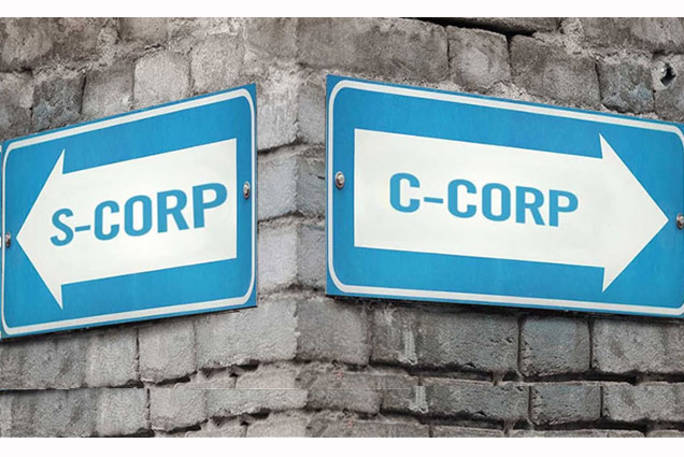


With the recent increase in emigration rates from Italy, many young people are landing in the US, including highly educated professionals, managers, and entrepreneurs. Italians don’t even call this phenomenon “emigration” any longer—they prefer to speak of “international mobility”.
This new breed of incoming Italians carry with them not only the ever-green “American Dream,” but also an innovative business sense with a drive necessary to succeed. Therefore, many newly established companies throughout the US are small and medium businesses owned by Italian citizens, green card holders and naturalized Americans of Italian origin.
When setting up a business in the US, it is imperative to be informed about US laws and international regulations—especially in the realm of tax and financial issues. In order to supply our readers with reliable information and expert advice, i-Italy has collaborated with Grassi & Co., one of the biggest CPA and financial consulting firms in the US, based in New York and staffed by many Italian and Italian American consultants.
This is the first in a series of articles which will be provided monthly by professionals at Grassi & Co.
* * *
New Tax Law Features Many New Advantages for C Corps;
March 15th Deadline for S Corp Conversion to C Corporation Status
The recently signed tax law made significant improvements to the C corporation tax section of the Internal Revenue Code. The new maximum corporate tax rate of just 21 percent, a substantial drop from the previous 35 percent, retaining full value of many deductions and avoiding the alternative minimum tax (AMT) are all of major value. Understandably, many professional tax and accounting specialists are urging companies to quickly consider their options to convert to a C Corp from other corporate tax configurations.
The majority of small enterprises are structured as pass-through entities such as limited liability companies or S corporations, where profits are taxed according to the owner's personal rate. While there is some tax relief in the bill for those pass-through firms--including a temporary ability to deduct up to 20 percent of income--many could access the permanent cut by converting to full-blown C corporations.
When Considering the Change from Pass-through to C corporations it is important to understand the following.
• Under the new C corporation tax rules, the corporate tax rate has dropped from 35% to 21% but the double taxation on income still exists. For years, taxpayers have stayed away from C corporation status to avoid double taxation. Double taxation is when a C corporation pays taxes first on its taxable income then the shareholder must pay tax in dividends received. Total tax if all the income is distributed is 44.8% (21% corporate tax +23.8% dividend rate). This is in comparison to 37% on the individual return if one is a pass-through entity.
• Another concern of double taxation is if you sell the corporation. If you are C corporation and the company is sold, the gain is taxed at the entity level and the distribution of cash received is taxed as dividends.
• If the taxpayer is a pass-through entity, income is taxed at the individual level while distributions are not taxable if the taxpayer has sufficient basis.
• If you elect to go from S to C you are unable to elect to go back to S for 5 years. If you elect to go back to S then there is a 5 year window of possible built-in gains tax for appreciated property.
• If you plan on investing your income back into the company to grow, and do not plan on taking dividends, the flat 21% tax rate could be the best choice for tax savings.
There are other areas to consider when choosing the type of entity to report taxable income, but most factors change by taxpayer. First, and most important, consult your trusted attorney, accountants and tax advisor. Now more than ever, changing from an S corporation to a C corporation can have significant tax consequences. Even if you've done your own review and lean toward a change, you should still have an expert weigh–in on the following:
• Make sure you've provided any expert with all the information they'll need to make an informed analysis of the company's situation. This includes financial information and profit or loss projections.
• Be prepared to explain why you've thought of revoking the election and the reasons you think it makes sense.
• It is a good idea to also involve other board officers at this point, so they have the opportunity to talk to your advisors and understand how the change will affect the business's operations.
• Review your tax documents over the past few years with experts so they can assess how much you've been paying in taxes, and how much that would likely change if you revoked the S-corporation election.
Again, consult your accounting team and remember the deadlines for conversion and filing are March 15th for both partnerships and S corporations ( Form 1065 – Partnerships / Form 1120S – S Corporations).
For more information on international tax matters, contact Timothy Larson, International Tax Partner at Grassi & Co., at [email protected] [2]
Source URL: http://iitaly.org/magazine/focus/facts-stories/article/accounting-today-experts-advise-italians-about-doing-business
Links
[1] http://iitaly.org/files/s-corpc-corp4jpg
[2] mailto:[email protected]